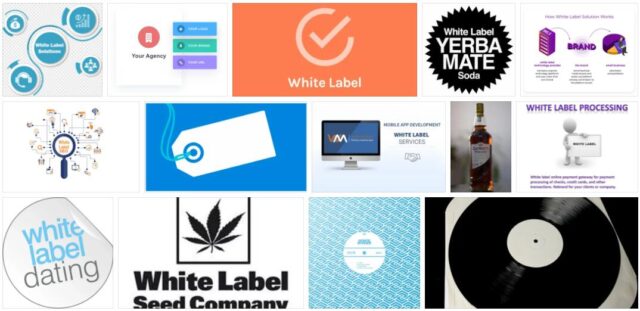Examples of white label and private label sales
I already mentioned above that you are confronted more or less unconsciously with the topic of white label in everyday life, especially when shopping at the discounter. Below are some examples of such products that are sold under the house brand.
- Manufacturer Unilever with branded product Rama and the second brand Sanella
- Manufacturer Bosch with power tools with the brand name Bosch and the second brand Skill
- Manufacturer Freixenet as a brand name and under the secondary brand Cava Delmora at the discounter
- Manufacturer Brandt for rusk as a brand name and at the discounter with the second name gold ears
- Chips manufacturer Bahlsen as a brand name and at the discounter under the second name of Stapel-Chips
These are just a few of the many other examples that we come across every day, especially when shopping.
The white label solution for your online shop
According to Healthknowing, such a solution is particularly popular with people who, like you, want to start their own business. In the online shop in particular, there are many opportunities to successfully start an independent career. Maybe worth considering for you too. You can sell a product without having to invest a dime in developing it. If the product does not find the desired sales, then you do not have any risk with it yourself . You also benefit from the following advantages:
- You are building your own brand with already established products
- You can determine the price for the sale of the products yourself
- You can adapt product descriptions according to your individual wishes
- You are completely free in the design of your content
- You get the software and web design for your online shop free of charge
- The manufacturer makes its supplier network available to you with many other products
- You do not have to pay for maintenance or service yourself
Basically, you can say that you can only benefit from a white label solution for yourself. You do not suffer any disadvantages because you neither have to invest a lot of capital nor take a great risk. All you have to do is find the right white label product for you.
What does white label banking mean?
If a partner with a banking license provides services and infrastructure to a third party, this is called white label banking. With white label banking, this third party is able to function like a bank and provide financial services to customers on a broad scale. This type of banking can be found especially in the Fintech Startup sector. Fintech represents a completely new type of financial service, which would not be possible without white label.
Hardly any fintech startup would be able to acquire a banking license and even raise the necessary financial resources. The so-called white label bank provides the fintech with previously defined necessary services, but remains in the background and does not appear itself. Under the label of the fintech startup, it is then possible to carry out normal banking transactions.
- Carry out account openings
- Handling of the entire account management
- Handling of all payment transactions
- Management of assets
- Granting of loans etc.
In addition to the know-how, the White Label Bank also provides the infrastructure and all the required banking processes. White label banking has not only existed since the emergence of fintech startups. Many large and well-known companies have been doing white label banking for a long time. A good example of this is the telecommunications company Telefonica. The processing of the entire O2 banking is operated in cooperation with the Fidor Bank.
The difference between white label and private label
Private label is the purchase of non-branded products from major manufacturers. The purchasing company then brands the product with its brand and the product is then sold to its end customer under this brand name and a precisely calculated margin. Private label stands for the term private label and this business model is not new. A very good example of this are large supermarket chains such as Rewe with its “Yes products” or Edeka with its “good & cheap” brand.
Sounds almost exactly like the white label. The difference between white label and private label, however, is that with the latter, the products are manufactured exclusively for a specific seller. They can change or improve the product according to their needs or wishes. These possibilities do not exist with white branding.
Conclusion
With a white label solution you can quickly establish yourself on the market. You have the opportunity to sell your own brand, even if you are not the manufacturer. A very good alternative, especially for small companies. You can offer products on a partner site and thus sell your product under a well-known name. The other way around, you can also buy white label products from the manufacturer and then sell them under your own brand. The advantage of this solution is that you do not have to make large investments , you get almost everything from the manufacturer and you can start selling after a short time.
